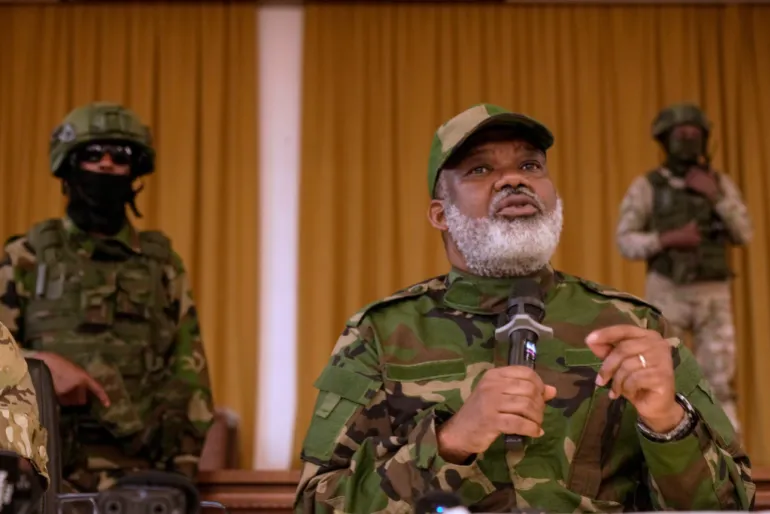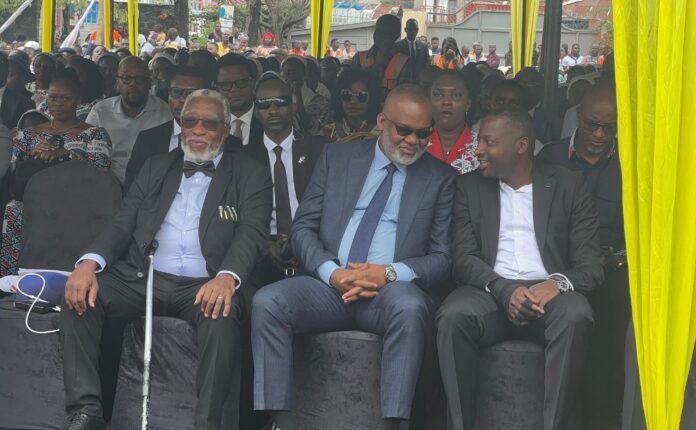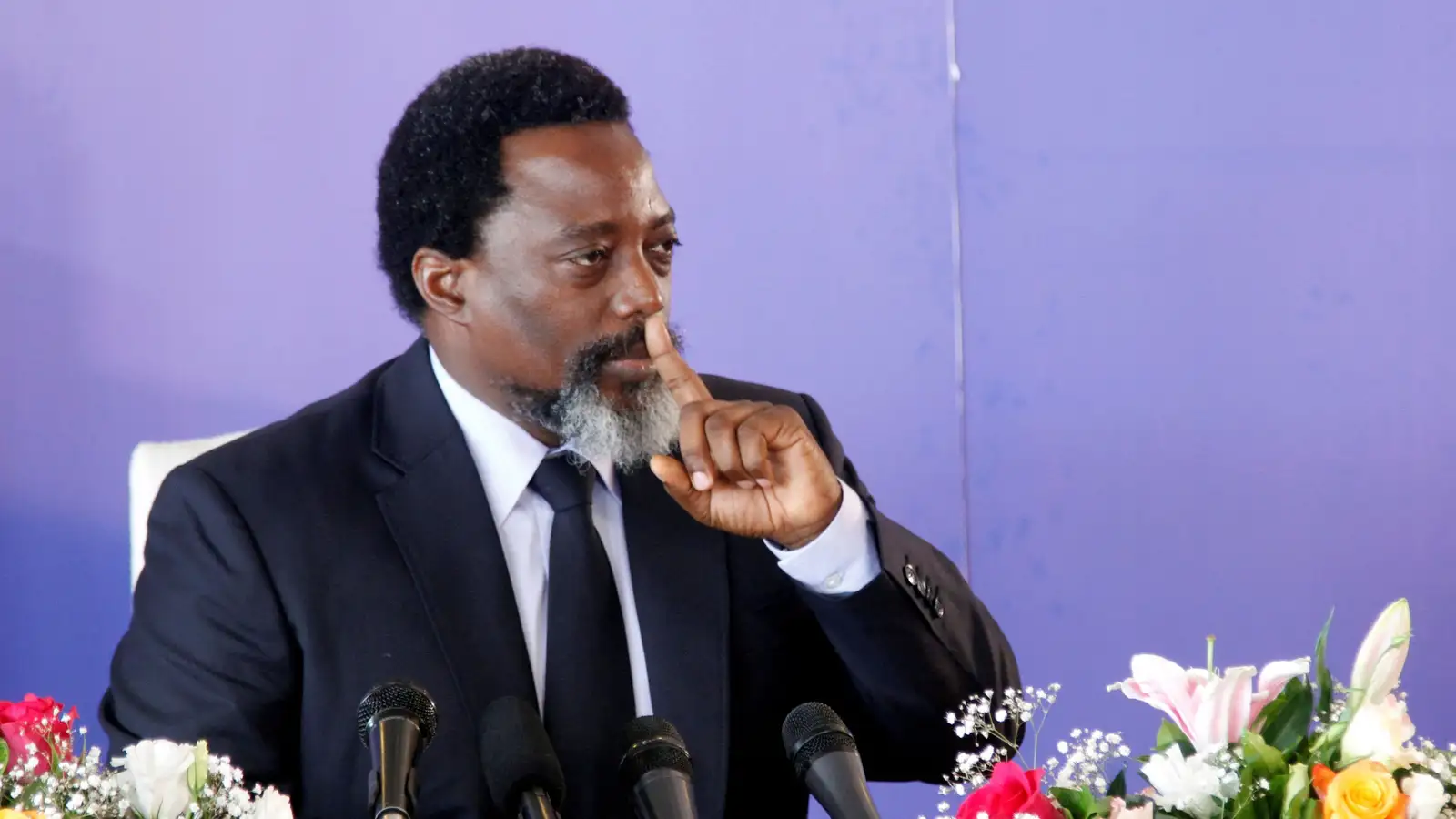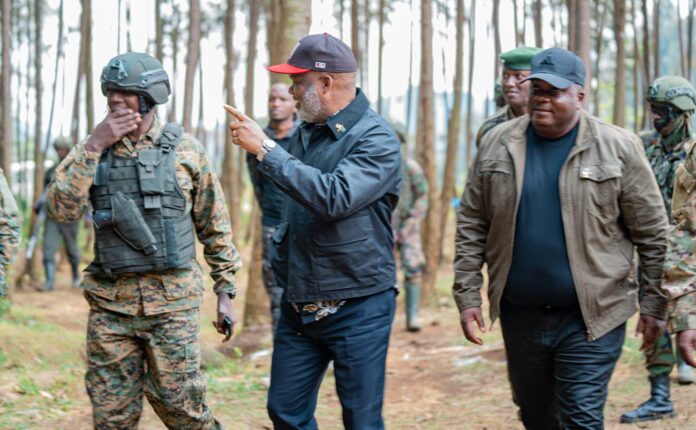The Congolese crisis finds its roots in the collapse of the state, a failing governance system, and identity-based tensions exacerbated by persistent discrimination and exclusion. This institutional vacuum has fostered the rise of armed groups, turning the territory into a sanctuary for various criminal factions, both local, such as the Maï-Maï militias, and foreign, such as the ADF and the FDLR. Furthermore, some political leaders in Kinshasa perpetuate these dynamics by funding irregular forces to serve private interests. As a result, the country’s chronic instability cannot be resolved without a structural overhaul of its institutions and the effective restoration of its sovereign authority.
Note: Company, Blog, Church websites are free.
The interview given by Corneille Nangaa, coordinator of the Alliance Fleuve Congo (AFC/M23), to Collette Braeckman from the Belgian newspaper “Le Soir” took place in a particularly tense context, marked by ongoing clashes between the March 23 Movement (M23) and the Armed Forces of the Democratic Republic of the Congo (FARDC) and their auxiliaries.
During this interview, Mr. Nangaa made observations of significant pedagogical, political, and strategic value regarding the real, deep, and structural causes of insecurity and instability, the deceptions of Tshisekedi’s government, and the hypocrisy of external actors.
From the outset, the AFC/M23 coordinator highlighted the underlying causes of the recurring crises in the Democratic Republic of the Congo, emphasizing the structural inefficiency of the state and persistent identity-based tensions.
Through his analysis, he underscored the central government’s inability to establish inclusive governance, thus highlighting the sociopolitical fractures fueling conflicts and, according to him, justifying the existence of his movement.
This strategic positioning reflects a clear intention by AFC/M23 to establish itself as an indispensable player in the Congolese landscape, moving beyond a strictly military framework to assert itself as a political force carrying a reformist project.
Indeed, AFC/M23 does not limit itself to mere armed resistance; it claims a broader mission to defend the rights of marginalized populations and restore political equity that has long been violated.
By presenting itself as the voice of the Republic’s excluded, the movement seeks to cement its legitimacy on the foundations of social justice and identity recognition. In doing so, it aims not only to redefine the balance of power in the DRC but also to impose an alternative narrative challenging the authority of a central government deemed ineffective and discriminatory.
This stance undoubtedly seeks to bolster the Alliance’s credibility in the eyes of regional and international bodies that closely monitor the conflict’s developments.
Mr. Nangaa also shed light on the paradoxical attitude of the Congolese government, which, under the guise of victim rhetoric, avoids any self-examination regarding its responsibility for the ongoing conflict. Cloaked in denial, Kinshasa authorities persist in favoring a military approach, thereby perpetuating a vicious cycle of violence at the expense of a political strategy essential for a lasting resolution of tensions.
This rigid stance, based on an exaggerated accusatory discourse, serves more to divert attention from the regime’s deep structural failures than to propose a viable solution to the crisis.
At the same time, instead of genuinely engaging in inclusive dialogue, the Congolese government multiplies its complaints on the international stage, seeking to manipulate the global community by portraying itself as a powerless victim of an alleged foreign aggression. Through this strategy, it systematically sabotages all mediation efforts, undermining any negotiation dynamics that might challenge its political monopoly. This evident duplicity reveals a desire not to restore peace but to maintain a status quo where instability serves as an excuse for governance based on repression and exclusion.
Far from being a mere factual statement, Mr. Nangaa’s remarks expose what is widely known the responsibility of the FARDC and the Congolese government in perpetrating atrocities.
By emphasizing the abuses committed by the regular army and highlighting the power’s dysfunctions, the coordinator points to internal tensions within the DRC while reinforcing AFC/M23’s position as a legitimate alternative.
The conflict extends far beyond national borders and fits into a regional dynamic involving multiple actors, including Rwanda, Uganda, Burundi, and the three SADC countries that have deployed troops in the DRC.
Corneille Nangaa’s intervention must therefore be analyzed within the framework of power relations in Central Africa, where every public statement has repercussions on diplomatic balances.
His interview aligns with a calculated communication strategy aimed at exposing the real and profound causes of the crises while weakening the Congolese government’s position, confronting it with its responsibilities.
This approach, combined with regional dynamics and prevailing power struggles, suggests highly uncertain prospects for the conflict’s evolution, where diplomatic initiatives and military actions will continue to clash in an influence struggle with multiple ramifications.



